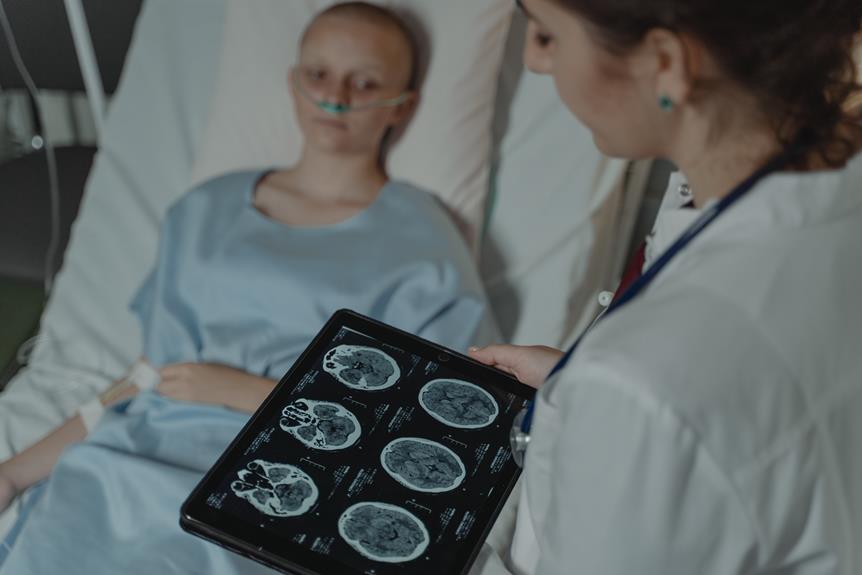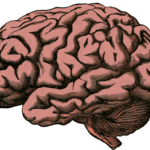Unveiling the Silent Struggles of Mild Traumatic Brain Injury
This article critically examines Mild Traumatic Brain Injury (MTBI), a pervasive yet often misunderstood condition. Despite its misleading nomenclature, MTBI can have serious implications on victims' lives. We will dissect its definition, causes, symptoms, and long-term effects. Furthermore, we will explore the legal rights of victims and the role of competent attorneys. This piece aims to enhance understanding of MTBI, challenge misconceptions, and provide crucial information for those affected.

Key Takeaways
- Mild traumatic brain injury (MTBI) can lead to long-term problems such as persistent post-concussion syndrome, cognitive impairments, and emotional changes.
- MTBI is often misunderstood and overlooked compared to more severe traumatic brain injuries.
- MTBI is commonly caused by sudden blows or jolts to the head and impacts to the body that cause the head and brain to move quickly back and forth and fall.
- Those who suffer MTBI due to someone else's carelessness or intentional act may have the right to legal compensation.
Understanding Mild Traumatic Brain Injury: Definition and Importance
In light of the aforementioned knowledge, it is crucial to highlight that, within the context of the current healthcare landscape, understanding the definition and importance of Mild Traumatic Brain Injury (MTBI) forms the cornerstone for effective diagnosis, management, and legal considerations. MTBI is a prevalent issue, often resulting from incidents such as sports injuries or vehicular accidents. The importance of early intervention in MTBI cannot be overstated, as prompt treatment can mitigate the risk of chronic complications. However, the challenges in diagnosing MTBI, most notably its nonspecific symptoms and frequent underreporting, can lead to delayed treatment. Therefore, it is imperative to refine diagnostic methods, enhance public awareness, and foster a collaborative care approach to improve outcomes for MTBI patients.
Identifying the Common Causes of Mild Traumatic Brain Injury
During the course of daily activities and recreational pursuits, individuals may unknowingly expose themselves to risks that can lead to Mild Traumatic Brain Injury (MTBI), and such exposure is often due to common incidents like sporting accidents, vehicular collisions, or falls. The impact on daily life can be significant, with symptoms impeding cognitive function, emotional stability, and overall quality of life. Prevention strategies are crucial in mitigating the risk of MTBI. These include using protective gear during sports, adhering to safety guidelines in vehicles, and ensuring environments are free from fall hazards. Despite its 'mild' classification, MTBI has severe implications, underlining the importance of raising awareness about its causes, effects, and prevention methods.
Recognizing the Symptoms and Long-term Effects of Mild Traumatic Brain Injury
Understanding the symptoms and long-term effects of Mild Traumatic Brain Injury (MTBI) is essential for developing effective treatment plans, and it also aids in raising public awareness about the seriousness of this often overlooked condition. Symptoms of MTBI can range from headaches, dizziness, to subtle cognitive impairments and emotional changes. These symptoms can persist long-term, creating challenges for both patients and their caregivers. MTBI recovery strategies often involve physical therapy and cognitive rehabilitation, which are designed to help patients regain lost skills and learn to cope with their new limitations. Additionally, psychological support is crucial in coping with emotional changes, as depression and anxiety are common in MTBI patients. The complexity of MTBI requires an interdisciplinary approach to ensure optimal recovery.
Legal Rights and Compensation: What to Know When Dealing With Mild Traumatic Brain Injury
If you or a loved one has suffered a mild traumatic brain injury due to someone else's negligence, it's crucial to understand your legal rights and the potential compensation you may be entitled to. This often comes in the form of workers compensation or through legal action against the negligent party. Establishing causation, a key element in negligence claims, requires a detailed examination of medical records and potentially expert testimony. Insurance coverage plays a significant role in this process as companies often dispute MTBI claims due to high associated costs. Thus, securing a skilled attorney with expertise in MTBI and navigating insurance hurdles is paramount. The damages recoverable include economic losses such as medical expenses and lost wages, as well as pain and emotional distress.
How to Choose the Right Attorney for Your Mild Traumatic Brain Injury Case
Selecting an attorney with a minimum of five years of experience in handling mild traumatic brain injury cases can significantly increase your chances of a successful claim. Evaluating attorney experience is a critical process involving the scrutiny of their track record in handling similar cases. Their competence in dealing effectively with insurance companies and their meticulousness in gathering and presenting evidence could be key determinants of success. The importance of effective communication cannot be overstated. An attorney's ability to articulate your situation, needs, and rights to both you and the court is crucial. They should be adept at simplifying complex medical and legal jargon, ensuring that the victim's struggles and the implications of MTBI are fully understood. Thus, selecting an experienced attorney capable of effective communication is pivotal.
Frequently Asked Questions
What Are Some Preventative Measures That Can Be Taken to Avoid Mild Traumatic Brain Injury?
Preventative measures against mild traumatic brain injury encompass using appropriate safety equipment and adhering to sporting guidelines. Safety equipment like helmets, mouthguards, and padding can significantly reduce the risk of injury. Ensuring compliance with sporting guidelines, particularly in high-contact sports, is also essential. These guidelines include proper techniques, rules for safe play, and routine safety checks. It's also crucial to promote awareness of MTBI risks and symptoms, fostering a culture of safety.
How Does Mild Traumatic Brain Injury Affect Children Differently Than Adults?
Mild traumatic brain injury (MTBI) impacts children differently than adults, particularly in terms of post-injury learning and emotional impact. Children's brains are still developing, so MTBI may disrupt cognitive development, leading to learning difficulties. Additionally, the emotional impact can be more significant in children as they may struggle to understand and cope with their symptoms. MTBI in children necessitates early intervention and tailored rehabilitation to address these distinct challenges.
Are There Any Specific Treatments or Therapies Available for Managing the Long-Term Effects of Mild Traumatic Brain Injury?
Yes, specific treatments for long-term effects of mild traumatic brain injury include cognitive rehabilitation and therapies for emotional coping. Cognitive rehabilitation helps improve memory, attention, and executive functioning skills that may have been affected. Emotional therapies, including psychotherapy, can assist with anxiety, depression, and personality changes. Each treatment is personalized, considering the unique aspects of the individual's injury and their recovery goals. It's important to consult healthcare professionals for proper treatment planning.
How Does the Legal Process Differ for Minors Who Have Experienced a Mild Traumatic Brain Injury?
The legal process for minors with mild traumatic brain injury involves unique considerations. Parents or guardians typically must initiate legal proceedings on behalf of the minor. The focus is often on securing funds for the minor's rehabilitation and future needs. Legal complications can arise, such as determining future damages and managing awarded funds. Courts may require a guardian ad litem to represent the minor's interests, ensuring the settlement is in their best interest.
Can Lifestyle Adjustments or Home Modifications Help in Managing the Symptoms of Mild Traumatic Brain Injury?
Lifestyle adjustments and home modifications can indeed aid in managing symptoms of mild traumatic brain injury (MTBI). Incorporating a balanced diet can influence overall health and potentially aid in recovery. Mental health care is crucial, as MTBI can lead to emotional changes. Home modifications ensuring safety and convenience, such as removing tripping hazards and installing adequate lighting, can prevent further injury. It's essential that these adjustments are personalized to the individual's specific needs and challenges.
Conclusion
In conclusion, Mild Traumatic Brain Injury, despite its seemingly benign terminology, has a profound impact on individuals' lives. It is crucial to raise awareness about the causes, symptoms, and long-term effects of this condition, to enhance understanding and empathy. Furthermore, individuals affected by MTBI should be informed about their legal rights and the role of attorneys in obtaining compensation, navigating the complex landscape of medical and legal issues associated with this often underestimated condition.

This post has been generated by AI and was not reviewed by editors. This is Not legal advice. Please consult with an attorney.




